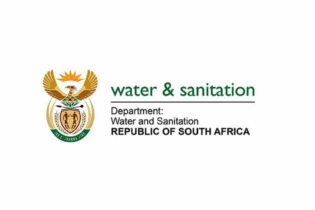As the failure to deliver drinking water to many communities across South Africa reaches crisis levels, and businesses suffer disruptions to their operations, a pioneering concession to provide water to a coastal enclave in KwaZulu-Natal could guide the future for many municipalities.
South Africa’s first Public-Private Partnership, signed between the then Borough of Dolphin Coast and private company Siza Water 24 years ago, is due to expire in six years. The concession contract for the PPP is now being managed by the iLembe District Municipality (IDM). The benefits and challenges of the PPP came under the spotlight at a seminar held by the Vuthela iLembe LED Support Programme recently. The Vuthela Local Economic Development Support Programme is funded by the Switzerland State Secretariat for Economic Affairs (SECO) and undertaken in partnership with the KwaZulu-Natal Department of Economic Development, Tourism and Environmental Affairs, the iLembe District Municipality and the KwaDukuza and Mandeni local municipalities. It aims to improve the economic future of the iLembe District through sustainable growth of the local economy. Municipal officials, development agencies, private developers, business chamber and ratepayer members, ward representatives and Siza Water managers shared their views on the performance of the concession at the seminar. Kirsch Bezuidenhout, the Acting Chief Director of the PPP Unit in the KwaZulu-Natal Provincial Treasury, told the seminar that the province was not immune to the “brewing crisis” over water services. “The recent droughts and floods highlighted our system’s incapacities and frightening limitations,” he said. The PPP contract between the iLembe District Municipality (IDM) and Siza Water was a ground-breaking agreement that demonstrated how collaboration between government and the private sector could provide basic water services and wastewater management to communities. “It remains a shining example of how a well-managed PPP agreement should be, in spite of the difficulties arising along the way, as with any relationship. “This contract has generally been managed quite well and performed at levels that have ensured exceptional services to households within the concession area. “This PPP agreement could serve as a blueprint for water and sanitation services across the country and it is a contract that KwaZulu-Natal should take pride in,” said Bezuidenhout. While the private sector was better placed to provide services efficiently, the Municipality cannot divorce itself from the management of the contract. Bezuidenhout said learnings from this contract had helped the Treasury to support municipalities to manage PPPs effectively. The KZN Provincial Treasury provides technical, legal and financial advice on PPPs to municipalities. Siza Water Managing Director Shyam Misra told the seminar that the company’s innovative technology and technical expertise made it highly efficient, leading to Blue Drop and Green Drop certification.The company had invested about R500 million in water infrastructure, which included upgrading seven reservoirs, six sewer pump stations and two sewer treatment works. These projects were financed through developer contributions or Siza Water’s own funds.
Water losses in the system had been reduced from 33% in 1999 to 8% in 2021. Siza Water officials maintained that the company provided water services in both areas strictly according to the terms of the contract. Municipal officials acknowledged the company’s successes, but said indigent communities were still served by shared standpipes and inferior toilet facilities. Sikhumbuzo Hlongwane, Executive Director for Economic Development and Planning at KwaDukuza Municipality, said that investment in new infrastructure in many areas had not materialised, and indigent communities in these areas were not receiving equitable services. “PPPs perpetuate inequality and under-development,” said Hlongwane. “Private sector investment in providing services tends to go into areas where the company will make money, but we have indigent areas which are a legacy of apartheid. How do we address this legacy of apartheid – this is a big issue for us,” he said. The IDM’s Cingisa Mbola said Siza Water had provided bulk infrastructure that contributed to the development of Ballito and surrounding areas, maintained a good collection rate, and kept their customers satisfied with good communication. But Siza Water was providing a sub-standard water service to the “township” areas within the concession area through standpipes, and there was no water borne sewerage system in these areas. The tariff structure was too high for indigent residents and Siza Water did not offer free services as required by current legislation. Siza Water was not investing in critical infrastructure that was required for future growth, and was using funding from developers, in the form of developers’ contributions, to pay for new infrastructure and service new developments. Mbola said there was a need to review the financial model to allow for a more equitable sharing of the profit between Siza Water and the IDM. In another development that reinforces the growing trend towards PPPs for water services, a Water Partnerships Office (WPO) has been established by the national Department of Water and Sanitation, the Development Bank of Southern Africa and the SA Local Government Association (SALGA) to make it easier, quicker and cheaper for municipalities to enter into PPPs. Johann Lubbe, head of the WPO, told the seminar that many municipalities faced financial and technical constraints. But South Africa’s private sector had the expertise to provide essential services efficiently, and banks and pension funds were eager to invest in public infrastructure. With national government revising regulations for PPPs to provide essential services, and the KwaZulu-Natal Treasury geared up to support municipalities to establish PPPs, the spotlight will remain on the successes and challenges of the Siza Water concession as it points the way towards how municipalities provide water in the future. Other municipalities, provincial and national government officials and water services providers in the private sector are bound to scrutinise the performance of this concession closely as new ways of bringing water to the people unfold.





